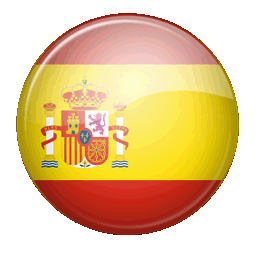What are thymoma and thymic carcinoma?
Thymoma and thymic carcinoma are very rare tumors arising from the anterior mediastinum. Thymoma is a low-grade tumor that tends to invade surrounding organs, but rarely spreads. In contrast, thymic carcinoma is a highly aggressive tumor, which may arise due to malignant transformation of a pre-existing thymoma.
Who gets thymoma or thymic carcinoma and why?
Both thymoma and thymic carcinoma are exceptionally rare in childhood, but if it happens, they develop predominantly in adolescents. Because thymus plays an important role in the immune system, these tumors may be associated with many autoimmune conditions, including: myasthenia gravis (particularly frequent in patients with thymoma), Sjögren syndrome, sclerodermia, polymyositis, hypogammaglobulinemia, nephrotic syndrome, hematologic syndromes (red cell aplasia, agranulocytosis), endocrine disorders (Cushing’s syndrome) and gastrointestinal disorders (chronic ulcerative colitis).
As a consequence of its rarity, TETs management remains a multidisciplinary approach.
Is there a risk for brothers/sisters to develop the same cancer or other types of cancer?
If any autoimmune or paraneoplastic disease exists in a child, a strict observation towards thymic tumor is required. Over 20% of patients with myasthenia gravis will have thymoma detected on radiological examinations. The symptoms of autoimmune diseases may precede the diagnosis of thymoma for months.
What are the typical symptoms and signs of thymoma and thymic carcinoma?
The most common signs are cough, breathlessness, chest pain and bulging veins on the neck. One third of children have no symptoms, and thymic tumor is detected by chance on a chest x-ray. As mentioned above – the first symptoms of thymoma and – less frequently – thymic carcinoma maybe connected with autoimmune disorders associated with these tumors. In these cases, the diagnosis of thymus tumor may be more difficult and delayed.
Which investigations are necessary for a child with thymoma and thymic carcinoma?
Radiological examinations of the chest (CT scan or MRI scan), are necessary to assess the presence, size and extent of the thymic tumor. Echocardiography may show the involvement of the heart and assess the cardiac function. FDG-PET/CT is also very important diagnostic method, showing not only the primary tumor, but also if it has spread. Also, the laboratory tests are needed to investigate the thymoma-related autoimmune diseases and to exclude other, more frequent cancers located in the chest.
Surgical resection or – in case when complete resection is not feasible – an open biopsy of the thymic tumor is necessary to establish diagnosis and to exclude some other cancers and diseases which may locate in mediastinum
Are there different stages of the disease?
Thymoma is usually limited to the thymus. Thymic carcinomas can spread to other parts of the chest and to distant organs of the body, such as lymph nodes, lungs or brain. Both tumors are assessed according to stages and classifications used for adults with thymic tumors.
What about the thymoma and thymic carcinoma treatment?
Surgery
Complete removal of the tumor is the “gold standard” for treating all thymic tumors. When a tumor is inoperable, an open biopsy or core needle biopsy is usually performed and then delayed surgery is recommended after initial chemotherapy.
Chemotherapy
Some patients require chemotherapy if the tumor is inoperable at diagnosis. Chemotherapy is used to decrease the extent of the tumor and enable its complete delayed resection. Experts in multidisciplinary meetings will usually discuss if there is a role for this treatment in your child’s case.
Radiotherapy
This type of treatment may be used for patients with disease that has not been removed by surgery or is very invasive.
What are the results of treatment?
The prognosis of thymoma is generally good, especially if the tumor can be resected totally.
It is much more difficult to treat thymic carcinoma so the results are not as good. The chances of cure vary, being low in those with tumor spread but higher in those with localized and completely removed disease.
What research is carried out for thymoma and thymic carcinoma?
Thymomas and thymic carcinomas are very rare in childhood so most research studies come from adults with these tumors. Studies are evaluating the efficacy of new drugs which target the thymic cancer specifically, after standard treatment has failed.
What EXPeRT is doing for children with thymoma and thymic carcinoma?
The main goals of EXPeRT group for children with thymoma and thymic carcinoma, contain:
- Collection of data of children with thymomas and thymic carcinoma from all European countries
- Creation of guidelines for diagnosis and treatment of thymomas and thymic carcinoma with the goal to optimize the chance of cure for all children
- Providing advice in difficult cases to the responsible clinicians, both at a European level and worldwide
- Collaboration with other Groups of experts and researchers to increase the knowledge on thymomas and thymic carcinoma to provide multidisciplinary care





